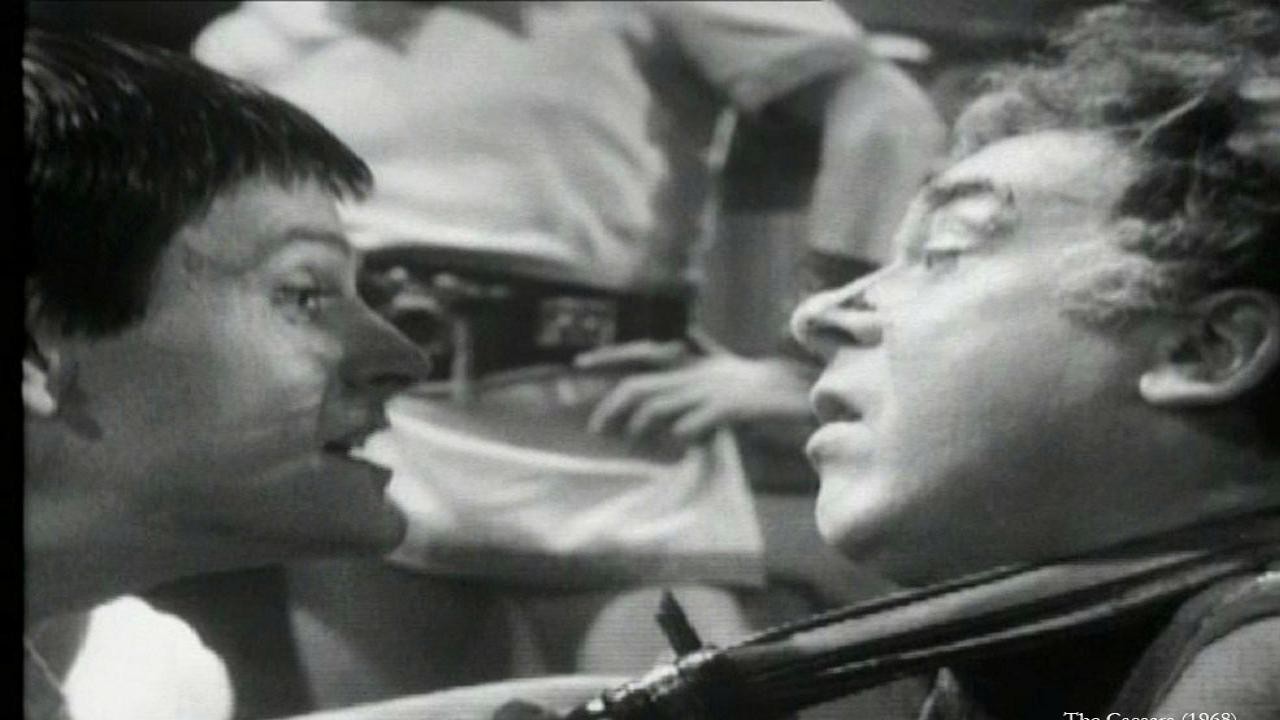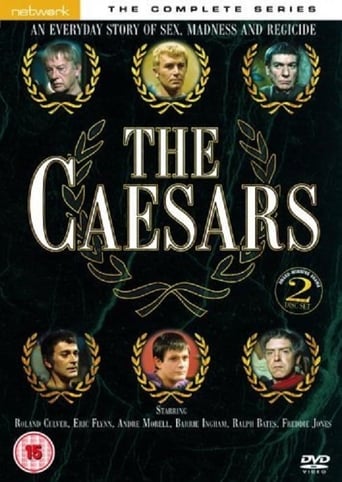



True to its essence, the characters remain on the same line and manage to entertain the viewer, each highlighting their own distinctive qualities or touches.
View MoreOne of the best movies of the year! Incredible from the beginning to the end.
View MoreThe storyline feels a little thin and moth-eaten in parts but this sequel is plenty of fun.
View MoreStrong acting helps the film overcome an uncertain premise and create characters that hold our attention absolutely.
View MoreIt was interesting to watch in my case, almost at one sitting what can be regarded the blueprint of the "I, Claudius" series that propelled Derek Jacobi and John Hurt to instant fame in 1976. Having seen that series numerous times, its black-and-white predecessor at first struck me as a rip-off, which of course isn't entirely true, since the old series was made in 1968, but then again: Philip Mackie's script does seem to borrow more than a little from Robert Graves' 1934 novel on which the Claudius series was loyally based. Both series deal with the Julio-Augustan dynasty of ancient Rome, and although the later series of course covers Claudius' reign as well (his accession is where the older series leaves off), they depict the same events and relate the same historical events, and even the same not-quite-historical events. Once you get over the truly hideous cinematography of "The Caesars" (the camera seems to change angles without observing any rules at all, and the angles chosen are often ludicrous and entirely undramatic), you must admire Philip Mackie's script. It is downright brilliant but seems more like the script of a play than a film script. It consists of very long though riveting dialogues in despairingly few locations, and action is a rare bird in the ancient Rome of "The Caesars".To dwell on the differences between the two series: Tiberius (André Morell) is praised throughout four episodes as a man of peace, a reluctant emperor who tries to make it without blood on his hands. He seems more to typify Marcus Aurelius than Tiberius. Caligula (Ralph Bates) is not as overtly psychopathic as John Hurt, but grows slower into his infamous lunacy. Claudius (Freddie Jones) is excellent, perhaps even surpassing Jacobi. But when all is said and done, "I, Claudius" is better. It has all that "The Caesars" has, and colour, too. I remember "I. Claudius" as the last big series before television came of age, aesthetically speaking, with "Brideshead Revisited" in 1981. Back in 1976, we still had the main focus on actors speaking their lines and acting their pants off, before a camera crew called in from the Eurovision Song Contest or some game show. Not much in the way of cinematography, I mean.But the greatest drawback of "The Caesars" they didn't have the star of the show Sian Philips as Livia.
View MoreI rarely give any production 10 out of 10 but this series, made in black and white in the 1960s, believed lost for many years, deserves it. 'The Caesars' focuses mainly on the reigns of two Roman Emperors, Tiberius (Andre Morell) and Caligula (Ralph Bates), although it touches on others along the way (Claudius, an excellent performance of someone playing the fool for survival from Freddie Jones; a regal Augustus; a vain Sejanus; and a foolish Germanicus) to make up the six episodes. Female characters also register strongly, with performances coming through clearly from the likes of Caroline Blakiston and Nicola Pagett.A script of power, superlative acting, restrained depiction of reigns of terror (compare this Caligula with the one enacted by Malcolm McDowell in the 1970s film) makes this series still watchable without it having been dated. The end of the episode 'Sejanus' is excellent and extremely moving, and the standard remains high throughout the whole of the series.Welcome to DVD and well worth watching.
View MoreI've seen both the 1968 and 1977 versions of the life of the Caesars and there is no doubt in my mind that the earlier version is superior. A great song and dance was made at the time, about the 1977 version, but it has several historical inaccuracies and it didn't pack the same punch nor contain the same intensity of feeling/quality of acting, as the '68 version.There were many moments that moved me very deeply in the '68 production. The scene where the new Commander of the Guard: Macro, was breaking the news to Tiberius after the trial and death of Sejanus, was to me, the most painful and wonderful scene of all. Tiberius (Andre Morell) is seated, and Macro is stood before him, informing him that Livilla & Sejanus had poisoned Castor, Tiberius' only son, to help secure Lavilla's own son's (Gemellus')procession to the throne. I was literally shaking and almost in tears, at Mr Morell's powerful acting and at the sheer emotional intensity and power of the scene. Mr Morell's performance, undoubtedly, brought out the best in the supporting cast, because they all seemed to be extraordinarily involved and emotionally affected. This is acting at its best.The murders of Posthumus, Germanicus and Drusus were deftly handled, especially Germanicus' poisoning at the hands of "that witch, Plancina".John Hurt's Caligula was very different to that of Ralph Bates, who tragically left us at the age of 51 in 1991. The part where Caligula (Bates)says that he makes love to the moon, was. to me, most revealing about Caligula's vulnerability, madness and general inability to cope with the demands made on him as emperor; being irrational, weak, helplessly hedonistic, narcissistic and ineffectual, one can hardly hope to hang on to the highest office! With Mr Bates' performance, Caligula's deranged character seemed to grow organically, from the moment he becomes emperor, being relatively "normal" at Tiberius' dinners, for example, to monstrously grotesque, vicious, volatile, manicically out of control and highly sadistic by the time he is killed by the guards. Mr Hurt doesn't look quite right from the start, indeed, we see the young Caligula setting fire to the house at about the age of 10. This implies that Caligula's unbalanced temperament and character were embryonically at fault and that he simply went from bad to worse. Mr Bates' interpretation suggests that it was absolute power, which he couldn't handle on becoming emperor; both these psychologival profiles are of course, tragic, but in very different ways.I really enjoyed the exchanges between Tiberius and his mother: the ageing Livia, with cut-glass English accents and first-rate acting.I would advise and recommend, that anyone interested in this period of history, should first make the effort to watch the '68 production. It's only by doing this, will you see just how lacking the 1977 version is.
View MoreI believe this programme is a very good story of political intrigue, murder and watered down sex, it is probably unfairr to compare it to I Claudius as the Caesars starts a lot further on into the story.The characters are the same but there behaviour is different for instance Germanicus is more politically aware than portrayed in I Claudius and Tiberias is much more empathic.The violence and sex is not so explicit as I Claudius which was made when TV was a bit more daring in the 1970s.This will please those interested in all things Roman.Ivaguely remember this programme on ITV back in my childhood, I think the Claudius story could be done again but with a more visual approach showing battle scenes possibly as a mini series or as a big screen blockbuster.
View More